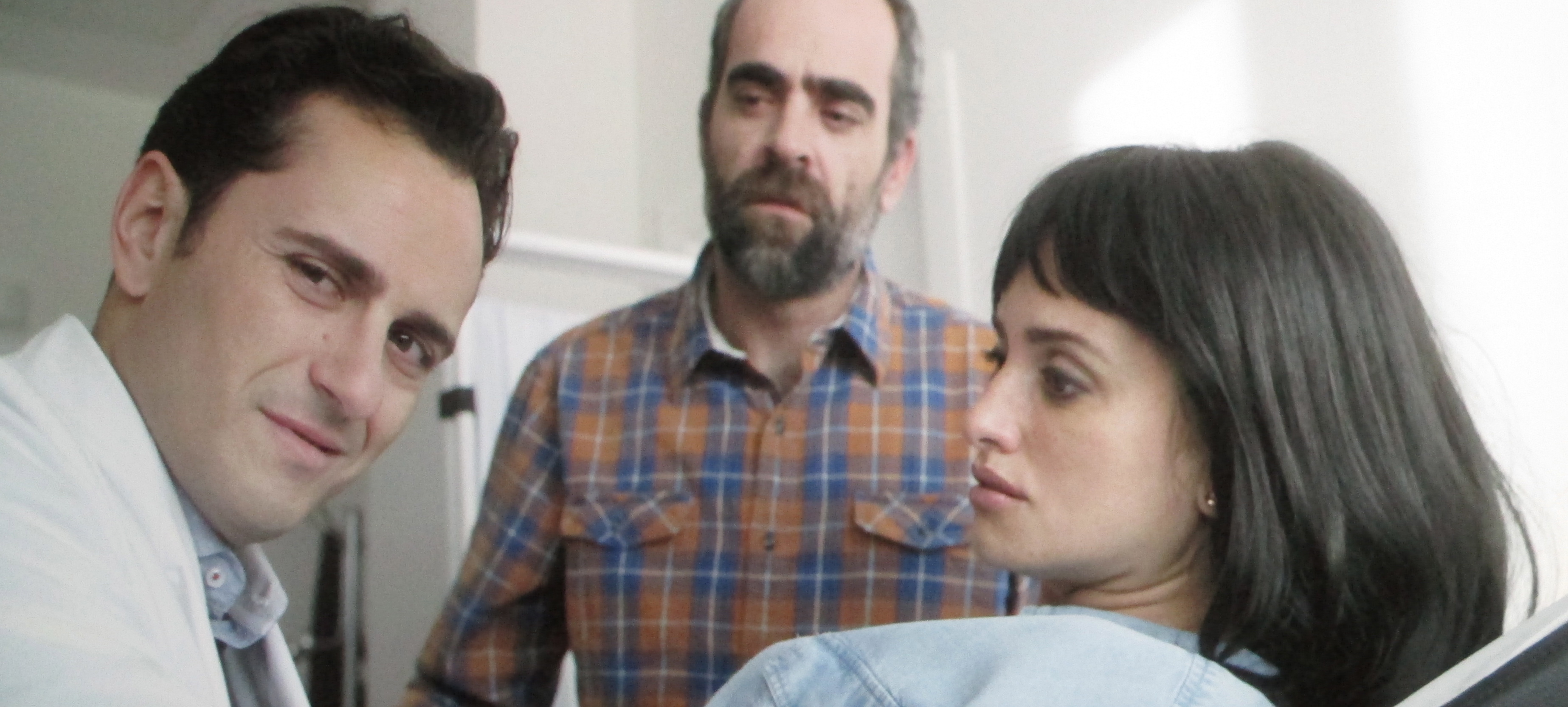I am avoiding the obvious word to describe Penélope Cruz in MA MA, but so be it if by saying that she illumes the screen I call the cliché to mind. Magda is among her finest creations, a great screen performance. It is no surprise that Julio Medem, the most illuminative of contemporary directors, elicited it. He is a magus; even the maligned Ana Caótica spun like a galaxy to a place of light. His films are universes that overlap our own, or maybe not: they are our own, or that substrate where synchronicity rules, time mightn’t exist, and love expels, if not fear, then its salience.
Nothing he writes or directs denies material reality. Tierra relied on a bizarre quasi-science for its cosmic poetry. Vacas was steeped in the hard politics of Basque resistance (transpose an ‘s’ and you have vasca). Lovers of the Arctic Circle (that favorite film of so many who don’t know its director’s name) depends for its timelessness on the linearity of years and days. The great Lucía y el sexo (Sex and Lucia) couldn’t exist without the body and the palpability of sunshine. In Room in Rome are, to ecstatic effect, both cupid’s arrow and a laptop computer. Ana missteps, if it does, by reducing, as Medem doesn’t elsewhere, a person to ideology. In MA MA, there are cancer, sudden death, economic crisis, and futbol, without which the undulations of time and intimations of soul would have no texture to pervade.
Chance, or what we call it, is fundamental to Medem. The smallest moment surprises, even if you saw it coming, in its emotional quality, certainly, or in how, when it happens, Cruz widens her eyes or takes on a glow beyond the known world. Life passages are the raison d‘être of Medem, and the irony – that is to say, the tragedy and the comedy – of it is that all the social formulae of birth, death, love and separation hinge on the coincidental and uncanny. What are possible and impossible aren’t strictly set; they’re dependent on the universe that imagines them. Can a life be outlived or a death overcome? In art, certainly. It is such a world that Medem and the extraordinary Cruz give us with MA MA.
To explicate the plot without this understanding feels like a sacrilege, makes it sound sentimental when it isn’t at all. It is a comedy (yes!) of parentage, breast cancer, separation, death, love, life and redemption. Laughter, in MA MA, is the analog of love. Nothing dire is reacted to without wit, nada sad without joy. Cruz, obviously, is the “cancer victim” and “mother” (the title is a double wordplay in Spanish), but to identify her with stock melodramatic type falls flat. Types are predetermined. She falls, as Magda, with her diagnosis, into the well of chance. So do, or have, her doctor (Asier Etxeandia), her soccer-besotted son (Teo Planell), the Real Madrid scout she delivers from loss (Luis Tosar), and her wayward husband (Alex Brendemuhl), who is shacking up with a blond student for the summer. In lesser hands what happens might seem a contrivance; in Medem’s it plays out a pattern bigger than we are but that we can influence, if only in art.
He is, in MA MA as before, the most optimistic of filmmakers, not just in plot, but in the poetry of image and its pull over time. The impossible can happen in dream, storytelling and film, and the question is raised whether more is conceivable than pure materialism allows. There is no one quite like him, mindful of hard reality, medical, economic and political, yet confident in the worlds we make for ourselves from exigency. Cruz, in her performance, absorbs and multiplies his positivity, taking the screen like a spirit cleansed and beatified. If hope matters, then so do the films of Julio Medem.
Check listings for viewing options.
